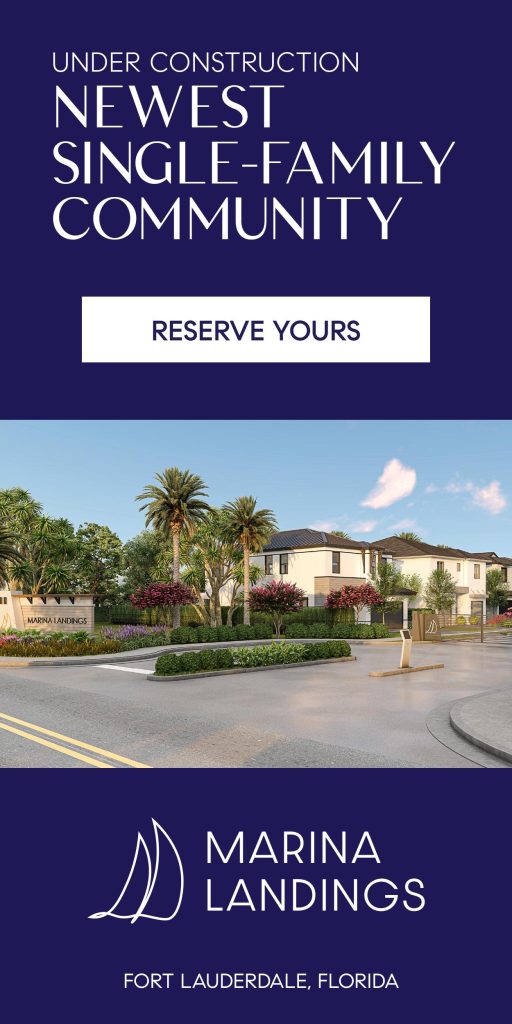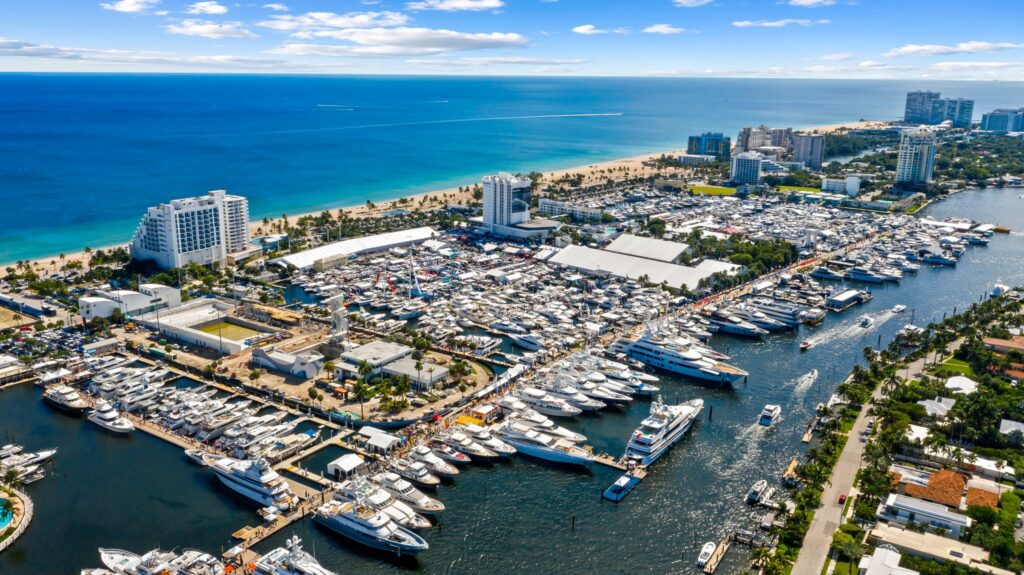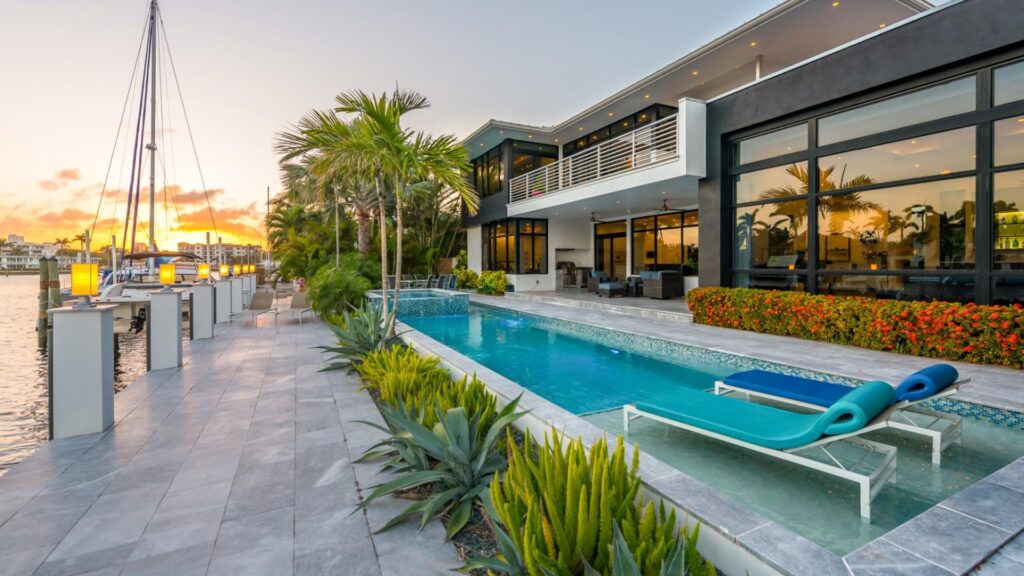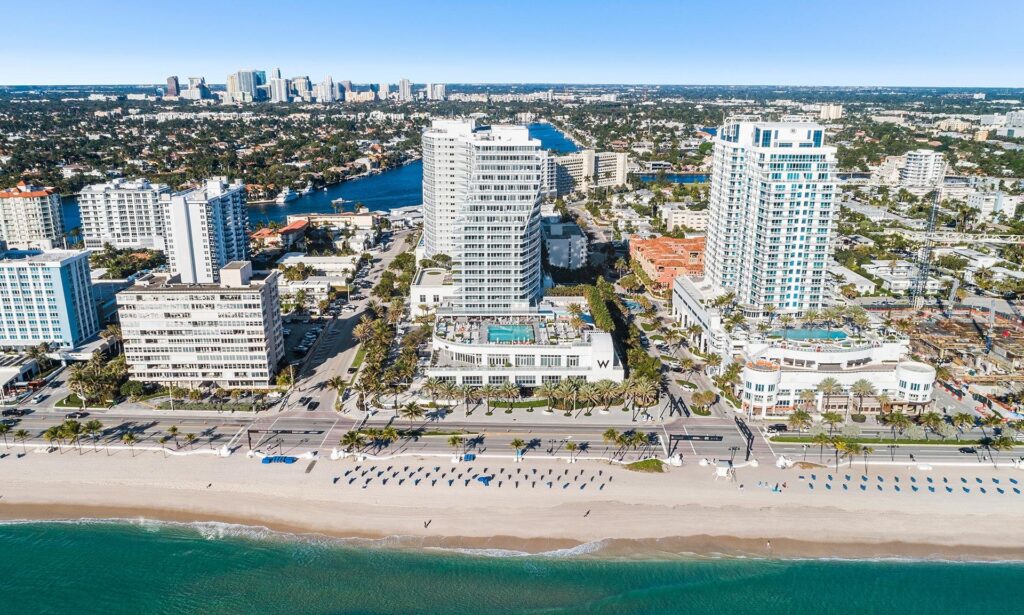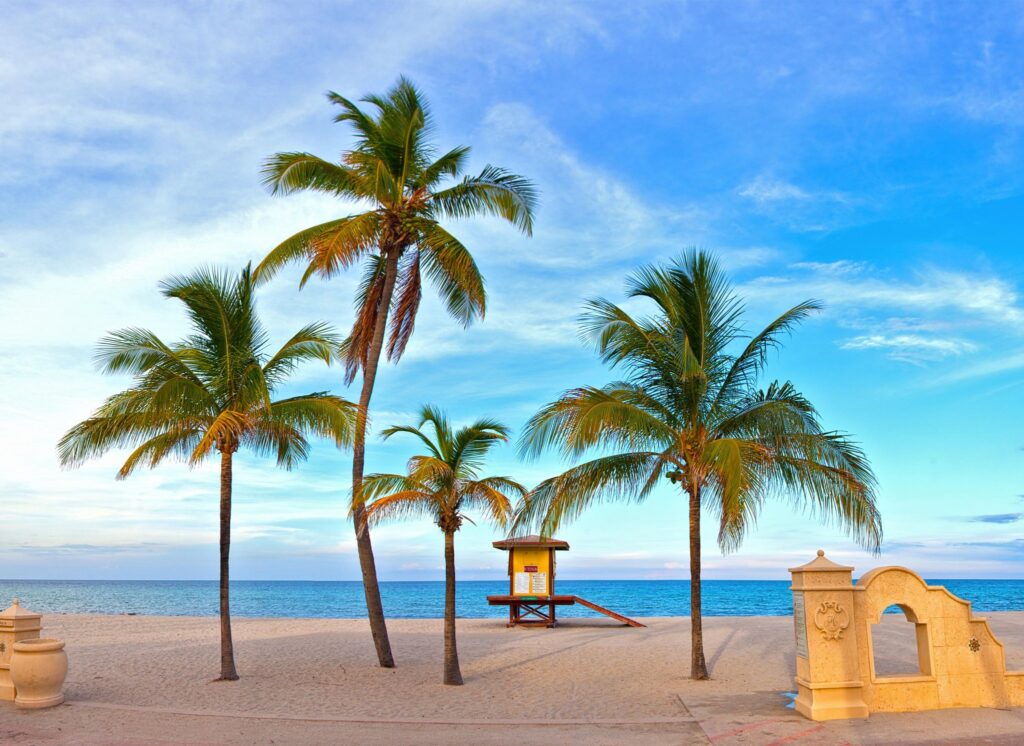Have you ever wondered how the tropical weather in Fort Lauderdale could affect your dream of owning a home? 🌴
Fort Lauderdale’s front views and tropical climate make it an alluring destination for home buyers, especially those seeking a luxury lifestyle. But before you dive into the real estate market here, it’s essential to understand how weather factors like hurricanes, flooding, and seasonal patterns can impact your buying decision. The weather in Fort Lauderdale is not just a backdrop. It significantly affects home construction, insurance costs, and overall property value. In this guide, we’ll cover everything you need to know about the weather’s impact on Fort Lauderdale home buying so you can make a well-informed investment.
Hurricane Season: The Impact on Home Buying
Fort Lauderdale’s name means that hurricanes are a reality for residents. The Atlantic hurricane season runs from June to November, peaking between August and October. Here are a few important considerations for prospective home buyers:
Insurance Costs:
Because Fort Lauderdale is prone to hurricanes, home insurance can be more expensive than in areas less exposed to storm activity. You are determining your budget’s important to factor in the windstorm and flood insurance costs.
Storm-Resilient Features:
Many homes in Fort Lauderdale have features that enhance hurricane resistance, such as impact-resistant windows, storm shutters, and reinforced roofs. When looking for a home, it’s wise to treat properties with these features, as they can offer peace of mind and help you save on insurance premiums.
Property Availability:
Home buying activity can fluctuate during hurricane season. Some sellers may hesitate to list their homes when there’s potential activity, while buyers may be wary of purchasing during this time. However, this can also lead to opportunities for those willing to navigate the market.
Flooding: Understanding Risks and Mitigation
Flooding is another weather-related concern in Fort Lauderdale, especially for waterfront properties. The city’s proximity to the ocean and low-lying areas makes it vulnerable to flooding from heavy rains, storm surges, and even king tides.
- Flood Zones and Elevations:
When buying a home, checking if it is in a designated flood zone is essential. Properties in high-risk areas may require additional flood insurance, which can increase homeownership costs. Additionally, homes built on elevated foundations or with raised construction can minimize flood damage risks.
- Drainage Systems:
Assessing the property’s drainage system and the neighborhood is crucial. Good drainage infrastructure helps prevent water accumulation during heavy rainfalls, which is particularly important in regions prone to flash flooding.
- Water Damage Precautions:
Look for homes built or retrofitted with materials that can withstand water exposure, such as ceramic tiles, water-resistant drywall, and proper sealing around doors and windows.
Weather Patterns and Seasonal Considerations
Fort Lauderdale’s Lauderdale’smate is characterized by hot, humid summers and warm, dry winters. Understanding the seasonal weather patterns can help you make informed decisions regarding your home purchase:
High Humidity:
Fort Lauderdale’s high humidity levels can contribute to mold and mildew, especially in older or unventilated homes. When touring homes, pay attention to signs of moisture damage and consider properties with effective HVAC systems designed to handle the local climate.
Stormwater Management:
Heavy rainfall is common during the summer months. Properties with proper grading that channels water away from the foundation are better equipped to handle Fort Lauderdale’s Lauderdale’ landscape, ensuring the yard slopes away from the home to prevent water damage.
Outdoor Living Spaces:
Fort Lauderdale’s mild winter months make it ideal for outdoor living. Many luxury homes are designed with expansive patios, pools, and gardens perfect for entertaining year-round. If outdoor living is a priority for you, consider how the home’s layout and landscaping take advantage of the climate.
Rising Sea Levels: Long-Term Considerations
Fort Lauderdale’s tension means that rising sea levels are a long-term concern for home buyers, especially those interested in waterfront properties. While this is not an immediate threat, it’s important to keep future risks in mind:
- Waterfront Property Considerations: Waterfront homes are highly desirable but have unique challenges. To mitigate rising sea-level risks, look for homes built to current codes with elevated foundations and sea walls.
- Investment Perspective: Homes in areas more vulnerable to rising sea levels may see their values impacted over time. Buyers looking for a long-term investment should research projected sea level rise and how it could affect the desirability and value of certain neighborhoods.
Preparing for the Weather: Essential Home Features
Given Fort Lauderdale’s Lauderdale’serns, several features can make a home more resilient and comfortable:
Impact-Resistant Windows and Doors:
These can protect your home during a storm and reduce the risk of wind damage.
Backup Power Supply:
Generators are a valuable addition, ensuring that essential systems like refrigeration, air conditioning, and lighting remain operational during power outages.
Proper Landscaping:
The right landscaping can prevent soil erosion, manage stormwater, and even act as a windbreak during storms. Native plants are a good choice as they are more resistant to the local climate conditions.
FAQs
1. How does hurricane season affect buying a home in Fort Lauderdale?
Hurricane season can lead to fluctuations in the real estate market, impact insurance costs, and make certain homes more desirable based on their storm-resistant features.
2. Is flood insurance mandatory in Fort Lauderdale?
If your home is in a designated high-risk flood zone, your lender will likely require flood insurance. Even if it’s not mandatory, it’s highly recommended, given Fort Lauderdale’s Vulnerability to flooding.
3. What should I look for in a Fort Lauderdale home to protect against flooding?
Look for homes built on elevated foundations, with proper drainage systems, and in areas less prone to flooding. Elevated construction and good grading can help minimize flood risks.
4. How do rising sea levels impact waterfront property investment?
Rising sea levels may affect the long-term value of waterfront properties. Buyers should research future projections and choose properties built to withstand coastal challenges.
5. Are there specific building codes for weather protection in Fort Lauderdale?
Yes, homes in Fort Lauderdale must adhere to building codes that account for hurricane resistance, including impact-resistant materials and reinforced construction standards to protect against wind and water damage.
Ready to Find Your Dream Waterfront Home in Fort Lauderdale?
At the DOTOLI Group, we specialize in finding luxury waterfront homes that meet your needs and provide peace of mind against Fort Lauderdale’s Lauderdale’ser challenges. Whether you’re looking for hurricane-resistant features, stunning outdoor spaces, or a comfortable oasis to call your own, we’re here to be. Contact us today to explore our exclusive listings and make your dream of owning a Fort Lauderdale waterfront home a reality! 🌊🏡✨







